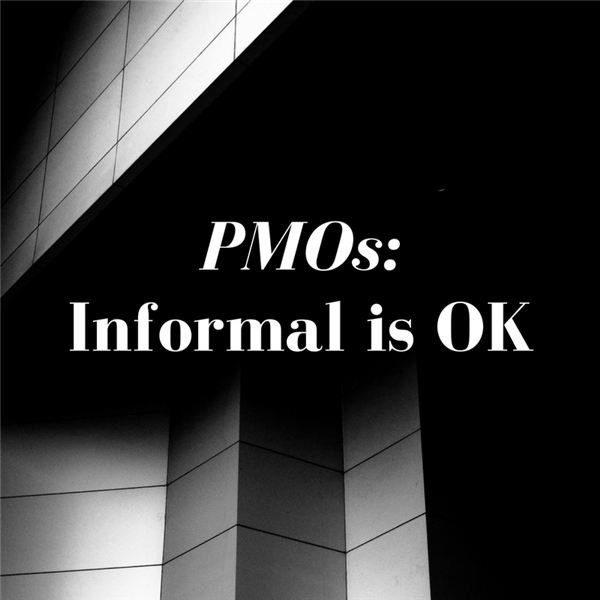Considering an Informal PMO: Can It Work for Your Business?
Taking an Informal Approach
The prior articles in this series dealt with the formality of the PMO organizations. PMOs are often known for their formal approaches in all ways as they seek to provide consistency in project management best practices across the organization. However, this formalized approach need not be so “formal,” nor do they need to be so formally prescribed.
Many organizations build a level of competency as they see fit. For example, there may be a group established that provides services in managing schedules, putting together meetings, putting together estimates and plans, and doing presentations and reporting. These are valuable services and may be all that the organization thinks it needs. It also may lead to a more formal PMO approach later, if the need is seen. Often, less formal PMO structures are not even called PMOs – or might be loosely referred to as such.
Will It Work for Your Organization?
Usually, the less formal the PMO, the more competent the skills need to be. I have seen organization where the formality was low, and even not even called a PMO, but the people are very skilled, certified in various disciplines, and highly experienced in certain areas that are needed. The key is to do enough to satisfy the need and fill the void in a professional manner always, and to avoid doing anything that interferes or is counterproductive.
Are there people in your organization that perform some subset of PMO functions but do not call themselves a PMO? Is this less formal approach working, or is there a more formal approach needed? To this last question, any answer is right – as long as it’s honest!
This post is part of the series: Project Management Offices (PMOs)
Project Management Offices can be a great asset for an organization, a disaster that doesn’t work out well or even be counterproductive. The question is what can a PMO do that adds value and is a welcome capability to the organization, and not a burden to those who are trying to get things done?
